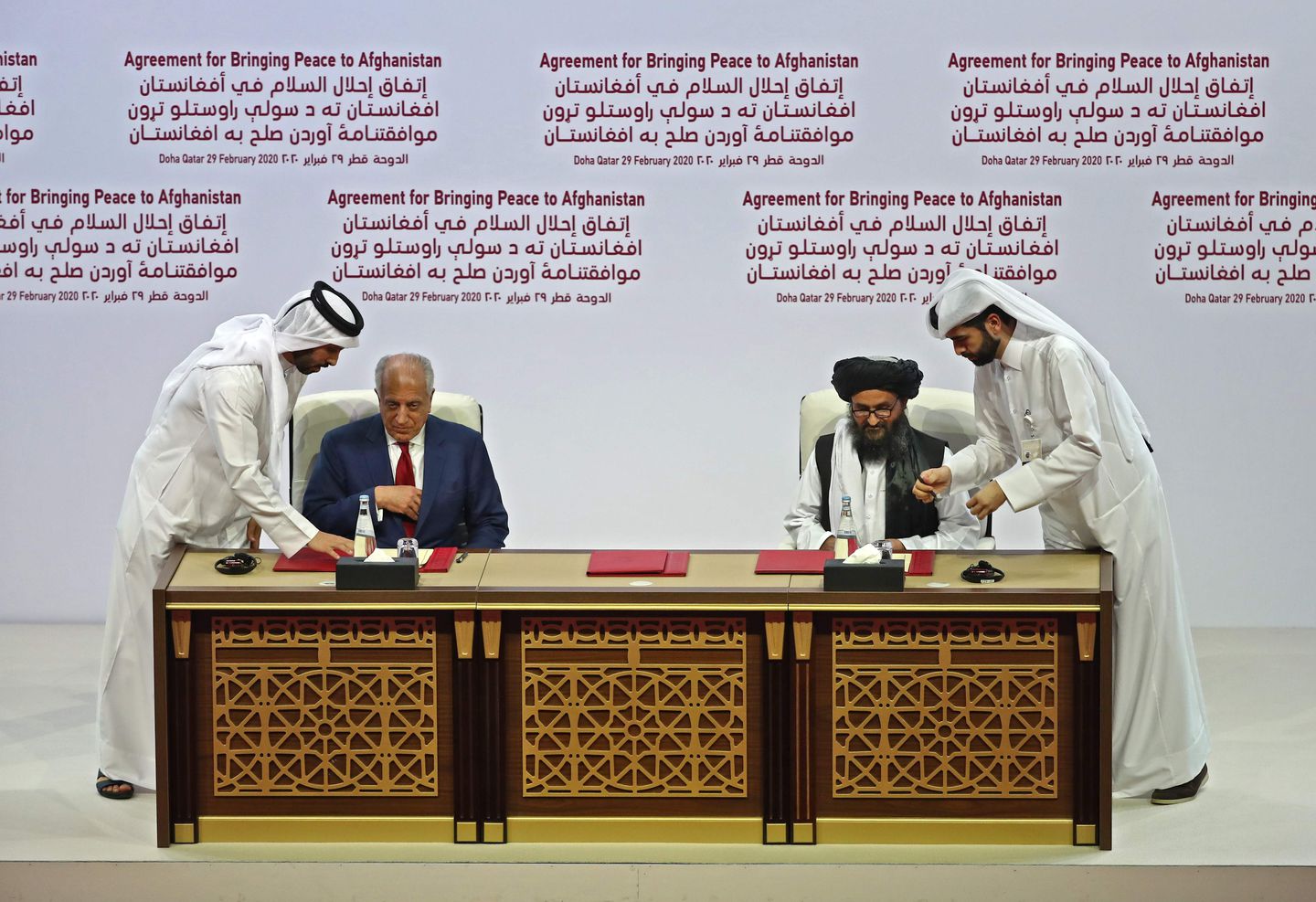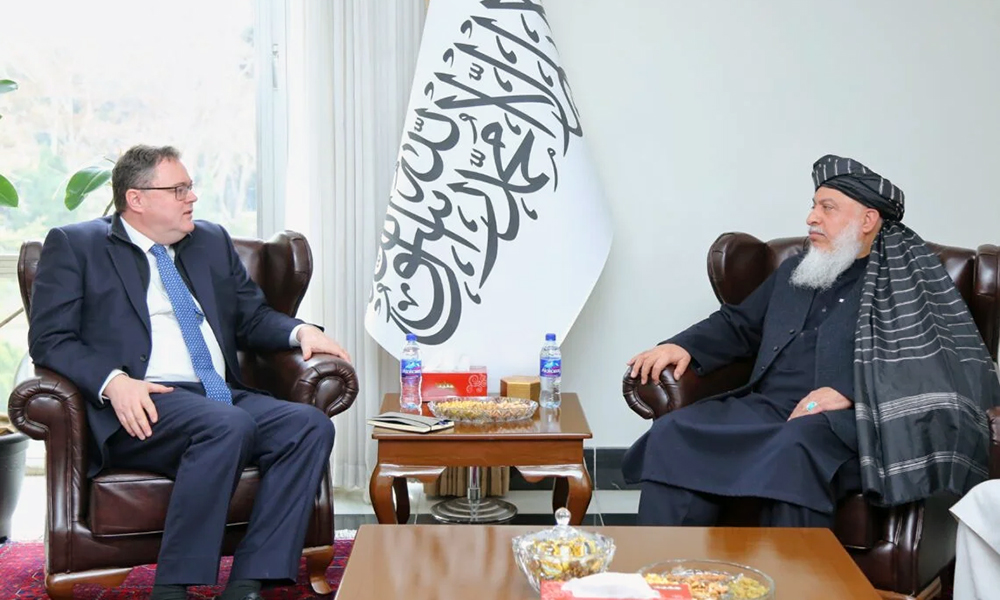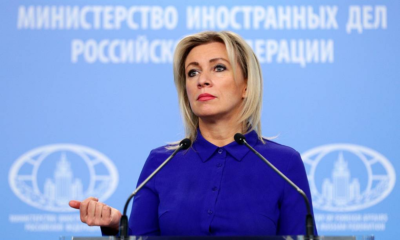Latest News
Joint statement regarding the US-Taliban agreement

 A joint statement was agreed on the occasion of the signing of the US-Taliban Agreement on February 29 in Qatar.
A joint statement was agreed on the occasion of the signing of the US-Taliban Agreement on February 29 in Qatar.
The representatives of the United States, France, Germany, Italy, Norway, the European Union, the United Kingdom, and the United Nations met on March 1 in Doha, Qatar and:
- Welcomed the important steps, enabled by the United States – Taliban agreement and the United States – Afghanistan joint declaration of February 29, towards ending the war and opening the door to intra-Afghan negotiations scheduled for March 10.
- Expressed their readiness to work towards a comprehensive and sustainable peace agreement that ends the war, contributes to regional stability and global security, respects the internationally-recognized rights of all Afghans also reflected in the Afghan Constitution and is honored by all Afghans, including the Government of the Islamic Republic of Afghanistan, political leaders, civil society and the Taliban.
- Reiterated that a comprehensive and sustainable peace can be achieved only through an inclusive negotiated political settlement among Afghans, in which, notably, women participate meaningfully, and by respecting Afghanistan’s integrity and sovereignty.
- Reaffirmed that the Islamic Emirate of Afghanistan is not recognized by the international community, and furthermore, the international community will not accept or support the restoration of the Islamic Emirate of Afghanistan.
- Welcomed the Taliban committing to join a political process and their prospective role in a new post-settlement Afghan Islamic government as determined by the intra-Afghan negotiations.
- Appreciated the February 22-28 reduction of violence and urged all sides to further decrease violence in order to create an environment conducive to intra-Afghan negotiations.
- Called on the Taliban and other Afghan armed groups to take concrete steps to ensure that the territory of Afghanistan should not be used by either them or al-Qa-ida, Daesh, or other international terrorist groups to threaten or attack other countries.
- Stated their expectations that all sides will observe a ceasefire for the duration of intra-Afghan negotiations to enable participants to reach agreement on a political roadmap for Afghanistan’s future and the modalities of a permanent and comprehensive ceasefire.
- Called on all Afghans to begin discussions immediately on issues of mutual concern, such as prisoner releases and a ceasefire.
- Reaffirmed existing commitments to provide political support and economic and development assistance to a future Afghan government, provided that it preserves and respects the internationally-recognized rights of all Afghans also reflected in the Afghan Constitution, including for women, youth and minorities, and responds to the desire of Afghans to build on the gains achieved since 2001.
- Reaffirmed existing commitments to continue assistance to the Afghan National Defense and Security Forces on a sustainable basis.
- Took note of the readiness of the United States upon the commencement of the intra-Afghan negotiations to engage with other members of the United Nations Security Council and Afghanistan to review the status of sanctions designations in order to support the peace process, noting that Taliban action to further reduce violence, make sustained efforts to advance intra-Afghan negotiations and otherwise cease to engage in or support activities that threaten the peace, stability, and security of Afghanistan or other countries will affect the review.
- Encouraged all countries to support the Afghan people and contribute to a lasting peace settlement in the interest of all.
- Welcomed all international efforts that support the Afghan peace process.
Source: https://eeas.europa.eu/headquarters/headquarters-homepage_en/75807/Afghanistan:%20Joint%20Statement%20on%20the%20Signing%20of%20the%20U.S.-Taliban%20Agreement?fbclid=IwAR380MGQG8Ldyr27YIWoRnmXCJ5b6oFyHbCsyjYMTzkei1JgRLfPQwd_NWc
Latest News
Human traffickers should be sentenced to 1 to 3 years in prison: IEA leader

The Leader of the Islamic Emirate has issued a decree instructing the Ministry of Interior Affairs to prevent human trafficking and to arrest and refer culprits to military courts.
The decree containing six articles says that that military courts should sentence human traffickers to one year in prison for the first time, two years if repeated for the second time and three years if repeated for the third time.
The ministries of Hajj, information, telecommunications, borders, propagation of virtue, as well as religious scholars are asked to inform the public about the dangers and adverse consequences of travelling through smuggling routes.
The decree comes as the rate of migration has increased following the political change in Afghanistan in 2021.
Latest News
Eight Afghan migrants die as boat capsizes off Greek island

Eight Afghan migrants died after a speedboat carrying migrants capsized off Greece's eastern island of Rhodes on Friday, the Associated Press reported.
Greek authorities said that the capsizing was the result of the boat’s maneuvering to evade a patrol vessel.
A total of 18 migrants — 12 men, three women and three minors — all Afghan nationals, were rescued, Greece's coast guard said Saturday. The dead were also from Afghanistan, it said.
Some migrants remained hospitalized, with one in critical condition, authorities said.
Two Turkish citizens, ages 23 and 19, were arrested as the suspected traffickers. The boat sank after capsizing, the coast guard said.
The sinking off Rhodes was the second deadly incident involving migrants in the past week.
Seven migrants were killed and dozens were believed missing after a boat partially sank south of the island of Crete over the weekend — one of four rescue operations during which more than 200 migrants were rescued.
Latest News
Norwegian Chargé d’Affaires meets with IEA deputy foreign minister
Welcoming the diplomat’s visit to Kabul, Stanikzai underscored the importance of political relations between Afghanistan and Norway, the foreign ministry said in a statement.

The Norwegian Chargé d’Affaires for Afghanistan, Per Albert Ilsaas, on Saturday met with IEA’s Deputy Foreign Minister for Political Affairs, Sher Muhammad Abbas Stanikzai, in Kabul.
Welcoming the diplomat’s visit to Kabul, Stanikzai underscored the importance of political relations between Afghanistan and Norway, the foreign ministry said in a statement.
In addition to focusing on bilateral political, humanitarian, and other pertinent issues, the two sides expressed hope that continued engagement would lead to constructive solutions to related issues.
This comes two weeks after the Foreign Ministry Spokesman Abdul Qahar Balkhi expressed disappointment regarding the decision by the Norwegian government to downgrade diplomatic relations with Afghanistan.
Balkhi said in a post on X that such decisions should not be linked with internal affairs of other countries.
“Diplomatic engagement is most effective when it fosters mutual understanding and respect, even amidst differing viewpoints,” he stated.
“Access to consular services is a fundamental right of all nationals. We strongly urge all parties to prioritize this principle in the spirit of international cooperation,” he added.
-

 Sport5 days ago
Sport5 days agoZimbabwe’s opening ODI against Afghanistan abandoned
-

 World4 days ago
World4 days agoNorth Korean troops suffer 100 deaths, struggling in drone warfare, South Korea says
-

 Latest News2 days ago
Latest News2 days agoAfghan men must stand with women to support viable future of country: US envoy
-

 Latest News4 days ago
Latest News4 days agoTwo horror accidents on Kabul-Kandahar highway leave 52 dead
-

 Sport3 days ago
Sport3 days agoAfghanistan crush Zimbabwe by 232 runs in second ODI
-

 Regional5 days ago
Regional5 days agoIran’s president to make rare visit to Egypt for D-8 summit
-

 International Sports4 days ago
International Sports4 days agoLanka T10: Kandy Bolts in at 4th spot in playoffs after thrilling day
-

 World5 days ago
World5 days agoNATO takes over coordination of military aid to Kyiv from US, source says



























